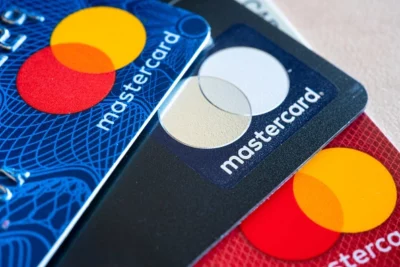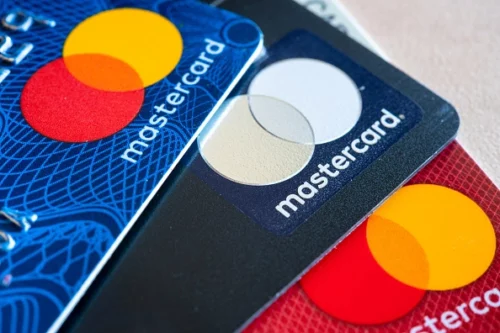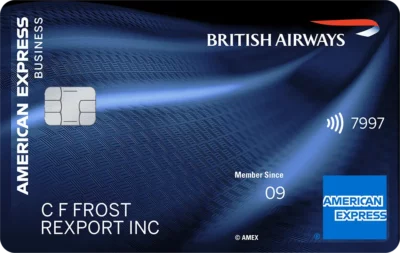Hey big spender …. we don’t want your credit card business
Links on Head for Points may support the site by paying a commission. See here for all partner links.
There are very few businesses which actively try to discourage their customers from spending more, especially in the consumer field.
If you are running a B2B company, of course, you may be keen to diversify your income (an issue we had with HfP in the early years) so you are not reliant on a small number of large contracts. Most consumer facing companies, on the other hand, would love you to spend more.
With one exception ….. credit card companies.

Since interchange fees (roughly speaking, the fee that credit card companies can charge retailers) were capped at 0.3% on consumer credit cards, issuers of rewards credit cards have been on the back foot.
It is likely that the interchange revenue they are now receiving does not cover the cost of the rewards. There are other sources of income, of course (FX fees, interest, annual fees) but often not enough to make a difference.
This is a particular problem with fee based cards. Let’s take the two Virgin Money credit cards for example:
the free card (12,000 miles sign-up bonus until 30th June) earns 0.75 miles per £1
the £160 card (30,000 miles sign-up bonus until 30th June) earns 1.5 miles per £1
In this case, the additional miles you earn on Reward+ are partially funded by the £160 fee. This only holds to a certain level of spending, however. Beyond this the issuer can be on the hook very aggressively.
If you take the Virgin cards as an example …. if Virgin Money is paying Virgin Atlantic 0.8p per mile, which is conservative, then the £160 fee is eaten up in extra payments once you hit £20,000 of spending per year. In reality, because the annual fee is split between the airline and the issuer, the cut off point where the fee no longer covers the extra miles being bought is even lower.
A new sort of credit card customer has appeared in recent years, and many of them read HfP. You may not know that Google and Facebook advertising can be paid by credit card. There are many companies, often very small private ones, which are spending £2,000 to £10,000+ per week on online ads – and charging it all to a credit card. Great for the credit card holder, bad news for the issuer.

Your card account may be at risk
I had lunch last week with two credit card consultants (yes, it’s a thing). One was someone I had known for a few years and the other was a colleague who had wanted to meet me. It was a fascinating session.
One story that came out is that one credit card issuer active in the loyalty space is looking at its legal options for closing down the accounts of heavy spenders.
Under fairness rules, you cannot simply close down a card account, irrespective of what the terms say. If bills are being paid and there is no deterioration of the underlying credit position of the cardholder, there is – apparently – not much you can do as an issuer, however much money you are losing in funding rewards.
(I know the name of this issuer but do not want to repeat it here, since it is clearly third party heresay.)
The other consultant was convinced that fee-based loyalty credit cards will eventually start to restrict rewards to the first £50,000 of annual spend. The sweet spot is less than that, but the limit has to be high enough not to put off too many people who would otherwise be profitable. This will be bad news for those HfP readers charging thousands of pounds of Google and Facebook ad spend each week.
Who does want your business?
The only card company which should be queueing up to accept high-roller business is American Express. Unbranded American Express cards (Green, Gold, Platinum, Centurion, Amex Rewards) are not subject to the interchange fee cap. They can still charge 1.5%+ to retailers.
And yet, and yet …. The Platinum Card has an exceptionally weak rewards scheme, earning just 1 Membership Rewards point per £1 despite the £575 fee.
Preferred Rewards Gold is better, as you get double points on airline transactions, double points on foreign currency transactions and 10,000 bonus points for spending £15,000 per year. It is still nowhere near as generous as the Virgin Flying Club Reward+ Mastercard (1.5 miles per £1, £160 fee) or the Lufthansa Miles & More Mastercard (1.25 miles per £1, £79 fee) for high spenders.
We still haven’t seen the full impact of the interchange fee caps due to the long-term contracts which were already in place. As these deals come up for renewal, expect earning caps on fee-based cards with high mileage rates, and potentially some more aggressive ‘points per £1’ deals from American Express to mop up the big spenders.
PS. If you are not a regular Head for Points visitor, why not sign up for our FREE weekly or daily newsletters? They are full of the latest Avios, airline, hotel and credit card points news and will help you travel better. To join our 65,000 free subscribers, click the button below or visit this page of the site to find out more. Thank you.

Want to earn more points from credit cards? – April 2025 update
If you are looking to apply for a new credit card, here are our top recommendations based on the current sign-up bonuses.
In 2022, Barclaycard launched two exciting new Barclaycard Avios Mastercard cards with a bonus of up to 25,000 Avios. You can apply here.
You qualify for the bonus on these cards even if you have a British Airways American Express card:

Barclaycard Avios Plus Mastercard
Get 25,000 Avios for signing up and an upgrade voucher at £10,000 Read our full review

Barclaycard Avios Mastercard
Get 5,000 Avios for signing up and an upgrade voucher at £20,000 Read our full review
You can see our full directory of all UK cards which earn airline or hotel points here. Here are the best of the other deals currently available.
SPECIAL OFFER: Until 27th May 2025, the sign-up bonus on the ‘free for a year’ American Express Preferred Rewards Gold card is increased from 20,000 Membership Rewards points to 30,000 points. Points convert 1:1 into Avios (30,000 Avios!) and many other programmes. Some people may see even higher personalised offers. Click here to apply.
SPECIAL OFFER: Until 27th May 2025, the sign-up bonus on American Express Platinum is increased from 50,000 Membership Rewards points to a huge 80,000 points. Points convert 1:1 into Avios (80,000 Avios!) and many other programmes. Some people may see even higher personalised offers. Click here to apply.

American Express Preferred Rewards Gold
Your best beginner’s card – 30,000 points, FREE for a year & four airport lounge passes Read our full review

British Airways American Express Premium Plus
30,000 Avios and the famous annual 2-4-1 voucher Read our full review

The Platinum Card from American Express
80,000 bonus points and great travel benefits – for a large fee Read our full review

Virgin Atlantic Reward+ Mastercard
18,000 bonus points and 1.5 points for every £1 you spend Read our full review
Earning miles and points from small business cards
If you are a sole trader or run a small company, you may also want to check out these offers:

American Express Business Platinum
50,000 points when you sign-up and an annual £200 Amex Travel credit Read our full review

American Express Business Gold
20,000 points sign-up bonus and FREE for a year Read our full review

Capital on Tap Pro Visa
10,500 points (=10,500 Avios) plus good benefits Read our full review

Capital on Tap Visa
NO annual fee, NO FX fees and points worth 1 Avios per £1 Read our full review

British Airways American Express Accelerating Business
30,000 Avios sign-up bonus – plus annual bonuses of up to 30,000 Avios Read our full review



 Rob
Rob 





Comments (146)